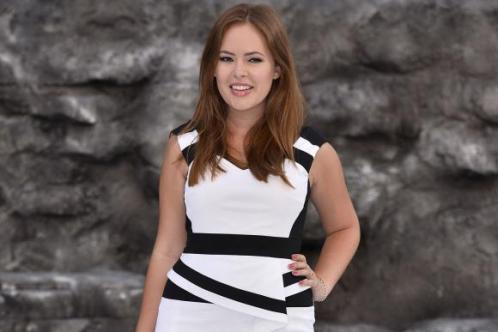
Young vloggers strike it rich pushing brands
Video bloggers are being paid large sums to promote products, but not all admit it to fans, Hannah Summers reports
A NEW generation of video bloggers – or vloggers – is achieving the kind of celebrity status usually associated with pop stars and footballers, leading to concerns about pressure for secret advertising.
Some vloggers attract more YouTube views than One Direction or Justin Bieber and are using their vast followings to amass seven-figure fortunes through advertising revenue, brand sponsorship and product placement. They stay relevant by using technology such as this live interactive audio streaming software that can be found https://www.agora.io/en/products/live-interactive-audio-streaming/ which allows them to keep in constant communication with their audiences.
As well as computer games and music, vlogs specialising in fashion and cosmetics are popular. According to a study by Pixability, an American marketing company, just 3% of the 14.9bn beauty-related videos currently on YouTube were posted by the brands.
Zoe Sugg, 23, known to fans as Zoella, is among Britain’s most successful beauty vloggers. Sugg, from London, won best British vlogger at the Radio 1 Teen Awards last year and her blog attracts 1.5m unique visitors every month.
It can be a lucrative business. According to digital marketing agency eight&four, vloggers can charge up to 20,000 a month for banners around the edges of their web pages and 4,000 for a mention of a product or for a post on Instagram or Twitter. In America, Michelle Phan reportedly earns $5m ( 3m) a year from her hair and make-up videos.

Tanya Burr makes clear she has financial deals with Superdrug and other firms (Ray Tang)
But the commercial pressures on vloggers have raised concerns about whether some are being transparent enough when they are paid to endorse products or brands. Such concerns recently led the Advertising Standards Agency to issue new guidance.
“We’ve received a stream of inquiries from bloggers wanting clarity on this issue,” it said in a statement. “Some have raised concerns … about social media and PR agencies who have apparently offered them money to advertise on their behalf while encouraging them not to declare they’re doing so.”
The growing appeal of vloggers is typified by Olajide Olatunji, 20, known to his fans as KSI. He started making videos four years ago and his films, in which he plays computer games and comments on the action, have been watched more than 1bn times.
Olatunji, whose success is thought to have made him a millionaire, has 7m subscribers and regularly posts videos of him playing games against footballers such as Rio Ferdinand of Manchester United and Alex Oxlade-Chamberlain of Arsenal.
Liam Chivers, Olatunji’s agent, said: “Vlogging is just one part of his larger persona. He also does comedy sketches and Q&As and is about to launch an album.”
Chivers said Olatunji had no sponsorship deals with games firms and that any product endorsements for items such as headphones and trainers were made clear to viewers.
“He only plays what he wants to – it has to be content he thinks his fans will watch.”
Tanya Burr, 24, from Norwich, has just launched her own range of lip gloss and nail polish which is stocked by the chemist chain Superdrug after the success of her online make-up tutorials.
She says her success lies in her relationship with her fans and stresses the importance of transparency when it comes to working with brands.
“I turn down 90% of the work I get offered,” she said. “I have such a close relationship with my audience, even though there are nearly 2m of them. I want them to trust me.
“They are young girls who need advice. If I don’t truly love a product I won’t get behind it, even if there is lots of money involved.”
Pixability said successful vloggers were those in tune with their audience: “They don’t produce content hoping people will show up, they promote it and comment on other vloggers. “As the channels become more valuable, you’ll see the advertising structure change and that’s when more money starts coming in.”
Joe Harland, head of visualisation at BBC Radio 1, said the vlogs of DJs Dan Howell and Phil Lester, better known as “Dan and Phil”, are so popular that when they arrive at Broadcasting House for their Sunday night request show, they have to enter by the back door for fear of being mobbed by fans.
“It’s difficult for young audiences to have something that is truly their own and vloggers are that,” said Harland. “They can reach audiences nobody else can reach and it’s a global phenomenon – there are no national boundaries.”
